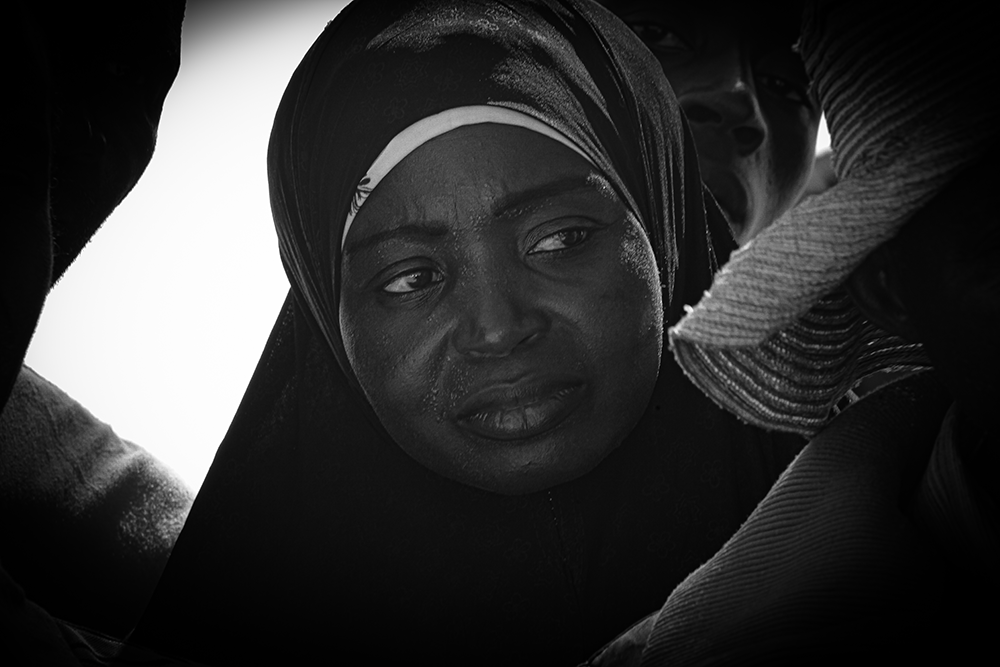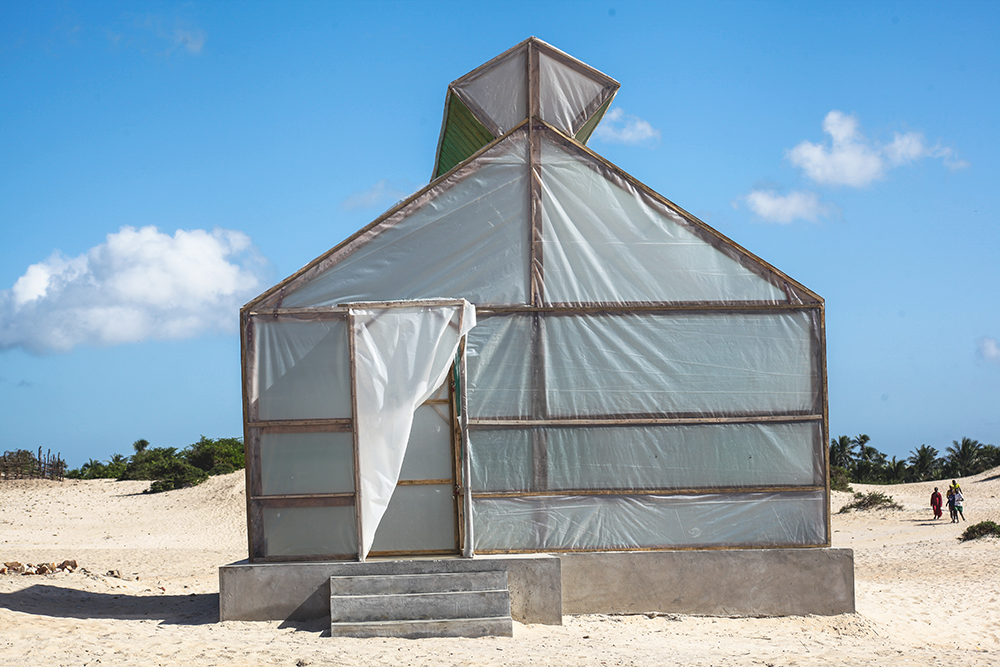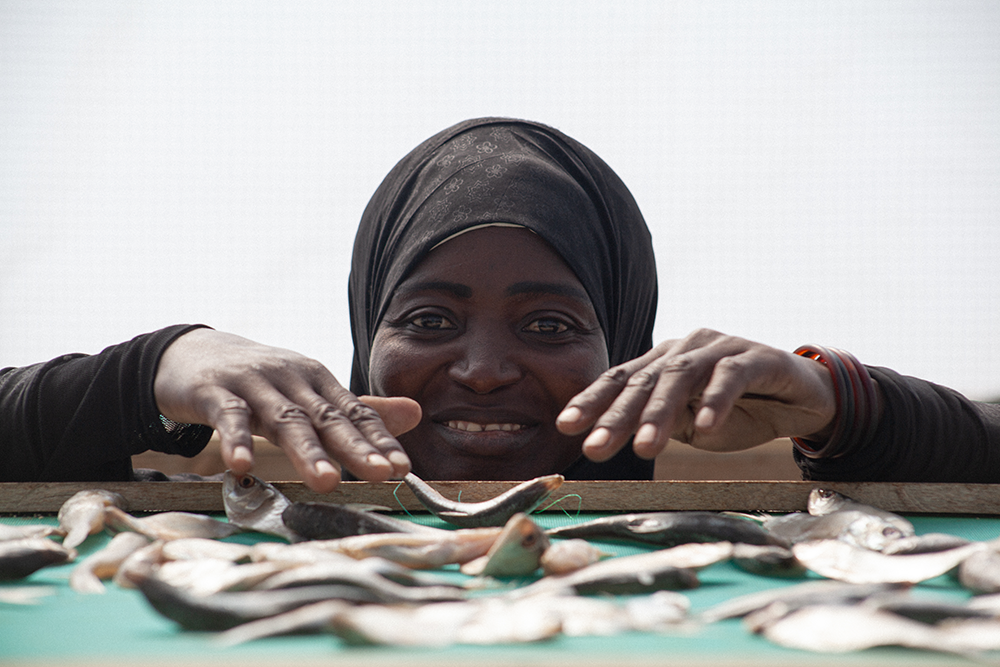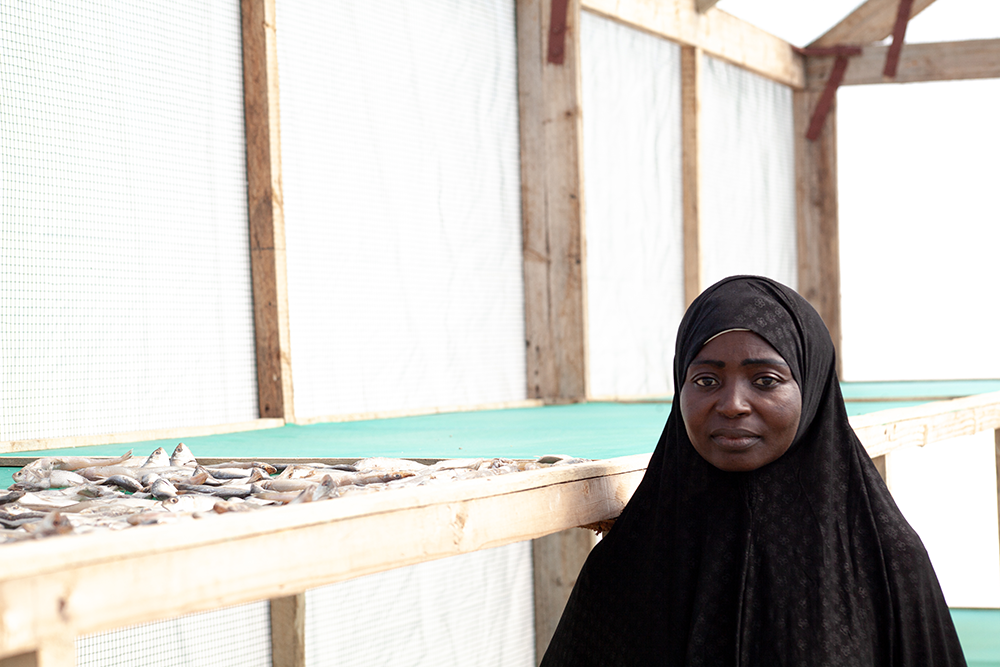Moma, Mozambique – When Islova Alberto Aly decided to venture into fish drying, her primary aim was to generate an income to support her children's education. Little did she know that her traditional fish drying methods—spreading fish on the ground by the Mucoroge beach, exposed to sand, dust, sun, and bacteria—would harm her community.

"My own family has suffered, and I've witnessed many in my community falling ill with cholera and diarrhoea," says Islova, while she carefully selects fish among the dunes and flatlands of Mucoroge beach in Moma district, Nampula province, northern Mozambique.
Located about 270 kilometres from Nampula city, the provincial capital, Moma district recorded the highest incidence of cholera cases in northern Mozambique between 2017 and 2021. In Moma, fish drying is traditionally done under the sun, with the fish exposed to several external elements.
Since September 2023, Islova has been drying fish as a member of the Wiwanana Orera Association ("Good to be United" in English), which provides the sole income for her family of seven, including her husband and five children.

By the seaside, as she organizes the fish she bought from the fishermen, she drags her feet, raising dust that not only sticks to her feet but also to the fish, jeopardizing the health of many.
"We have no other means to dry the fish we buy here. We must dry it on the ground," she said, while wipes small beads of sweat from her face with the black burqa she is wearing.
The World Health Organization (WHO) states that consuming unsafe food can cause over 200 diseases, from diarrhoea to cancer. Globally, the WHO estimates that 600 million people—nearly 1 in 10—fall ill each year from eating contaminated food, resulting in 420,000 deaths and the loss of 33 million years of healthy life.
To promote the consumption of healthier diets, specifically Animal Sourced Food, reduce post-harvest losses, and encourage good practices and processing technologies, GAIN Mozambique is implementing the "Improving the Consumption of Animal Sourced Foods" project.
This initiative, funded by the Ministry of Foreign Affairs of the Kingdom of the Netherlands, has already led to the construction of three solar drying tents, with a fourth underway. According to project manager João Alberto, the project aims to build a total of 15 solar drying tents.
"We aim to train over 1,000 fishermen and fish processors in good handling practices and appropriate processing technologies to ensure they sell and consume safe, high-quality fish, thereby preventing various diseases," says João Alberto.
The Food and Agriculture Organization (FAO) ranks Mozambique among the lowest in global consumption of animal-source foods. In East and Southern Africa, Mozambique is last in total animal-sourced food consumption. Despite the availability of marine fish, pork, and dairy products, per capita consumption levels are significantly low.
The Financial Cost of Open-Air Drying
According to GAIN Mozambique's 2022 fish value chain assessment report, fish is highly perishable. The lack of adequate handling facilities at most landing and storage sites leads to significant pre-market losses, ranging from 30-60% of the catch.
Islova is aware of this issue, sharing that she loses a significant number of fish due to rain or contamination during open-air drying.

"Even without rain, we never recover all the fish," she adds.
As a fish processor, she notes that the association typically sells 90 kilograms of dried fish for between 10,000 and 12,000 meticais (approximately 200 USD), but often loses fish worth about 31 USD.
"Two thousand meticais is a significant amount that would greatly help with household and association costs, and losing it is bad for me," she regrets.
Safer and Healthier Solutions
From the sand, Islova’s fish went to the solar tent, free of dust, sand and intense sun.
"For us, having a drying tent will greatly aid our activities by reducing the risk of contamination and improving our income. Now I can dry the fish in the tents and sell it without fear of contamination to my community members," she says.

It will now take only two days to dry the fish, compared to the three days previously required. "The covered tent ensures we can work even when it rains. Currently, we have no way to work during sudden rains, which ruin our fish."
This initiative is also expected to improve profit margins, "These solar tents will not only ensure safer fish for our community but will also boost our business by increasing production efficiency and reducing losses," says Islova confidently.